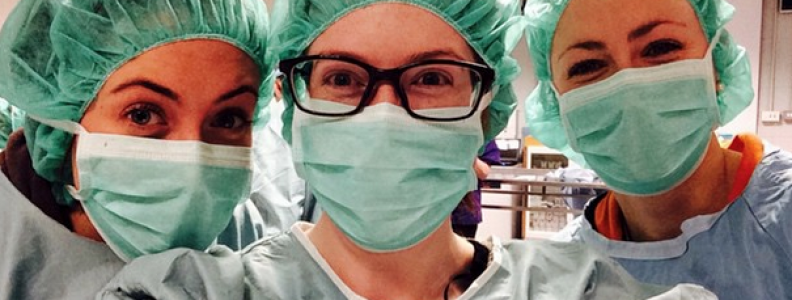For anyone who has been following my blog posts for a while now you might have wondered when I’d be done with vet school – well the end is in sight as this year I enter my final year in the UCD vet program.
https://www.instagram.com/p/yDCr_ev8Ra/?taken-by=pumpkinpops
Final year in the veterinary medicine and veterinary nursing programs consists of clinical rotations in the UCD Veterinary Hospital covering different specialties. In essence final year is the opportunity to bring the science and theory we have learnt over the past 3 years and apply it practically. Below is a quick run through of the different rotations for the vet med students and whats involved (more specific information can be found on the myUCD website here).
- Small Animal Medicine
- Includes taking histories, performing physical examinations on patients, assisting with diagnostic procedures, administering treatments, maintaining case records and communicating with clients.
- Currently 6 weeks long, including a week spent on first opinion medicine and another week in the intensive care unit (ICU).
- Surgery (Large and Small Animal)
- Includes history taking, performing physical exams, looking after the patients before and after surgery, surgery procedures, maintaining patient records, communicating with clients.
- Currently 6 weeks long, including an introduction week where we get to practice surgical techniques in the clinical skills lab, 2 weeks dedicated to large animal surgery, 2 weeks dedicated to small animal surgery and 1 week shelter medicine where we cover first opinion medicine and surgery.
- Anaesthesia (Large and Small Animal)
- Currently a 2 week long rotation where students get involved with planning anaesthesia protocols (e.g. planning which drugs are appropriate for each patient and procedure) for animals needing surgery, as well as monitoring animals during surgery and recovering them afterwards.
- Diagnostics
- Involves 2 weeks spent in diagnostic imaging (learning how to safely take radiographs and ultrasounds of animals to help in diagnosing conditions)
- Another 1 week is spent in para-clinical rotation (involves time spent in the microbiology, parasitology and clinical pathology labs).
- Equine Clinical Rotation
- Currently a 2 week rotation spent in a mixture of the UCD Veterinary Hospital, Lyons Estate (UCD’s farm based in Co. Kildare) and on ambulatory practice.
- Includes learning how to perform clinical examinations and procedures on horses, monitoring patients in the hospital and assisting with their treatments, maintaining patient records.
- Large Animal Rotation
- Currently a 5 week long rotation where students get to assist with treatment and care of patients at the UCD hospital, as well as visits to various farms and Lyon’s Estate where we would focus on things like herd health and reproductive health of cows.
https://www.instagram.com/p/zVToK3P8Xw/?taken-by=pumpkinpops
The aim of final year is to allow us students to develop “day one competencies” required for us to be considered as competent veterinarians. In simpler terms, there is a long list of things veterinarians are expected to be able to do by the day they graduate – and final year is when we learn how to, and demonstrate that we can perform these competencies.
We are expected to get involved with all aspects of patient care in the hospital – so for example we can come up with plans for what might be wrong with patients and how they should be treated, or for specific rotations like anaesthesia, we can assess the patient and decide which drugs would be the best to use for surgeries. We then discuss our plans with the interns, residents and more senior clinicians to see if what we came up with was correct/appropriate. So you could say that one of the aims of final year is to get us thinking like vets. The hours are long – we could be in at 7:30am right through to late at night, only to get back up and do it all again (and don’t forget you have to fit in studying, eating and sleeping as well!).
It’s gonna be an intense but fun year! As always if anyone has any questions, don’t hesitate to leave them in the comments!






